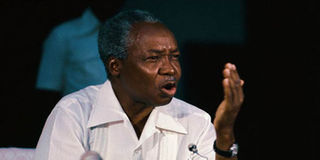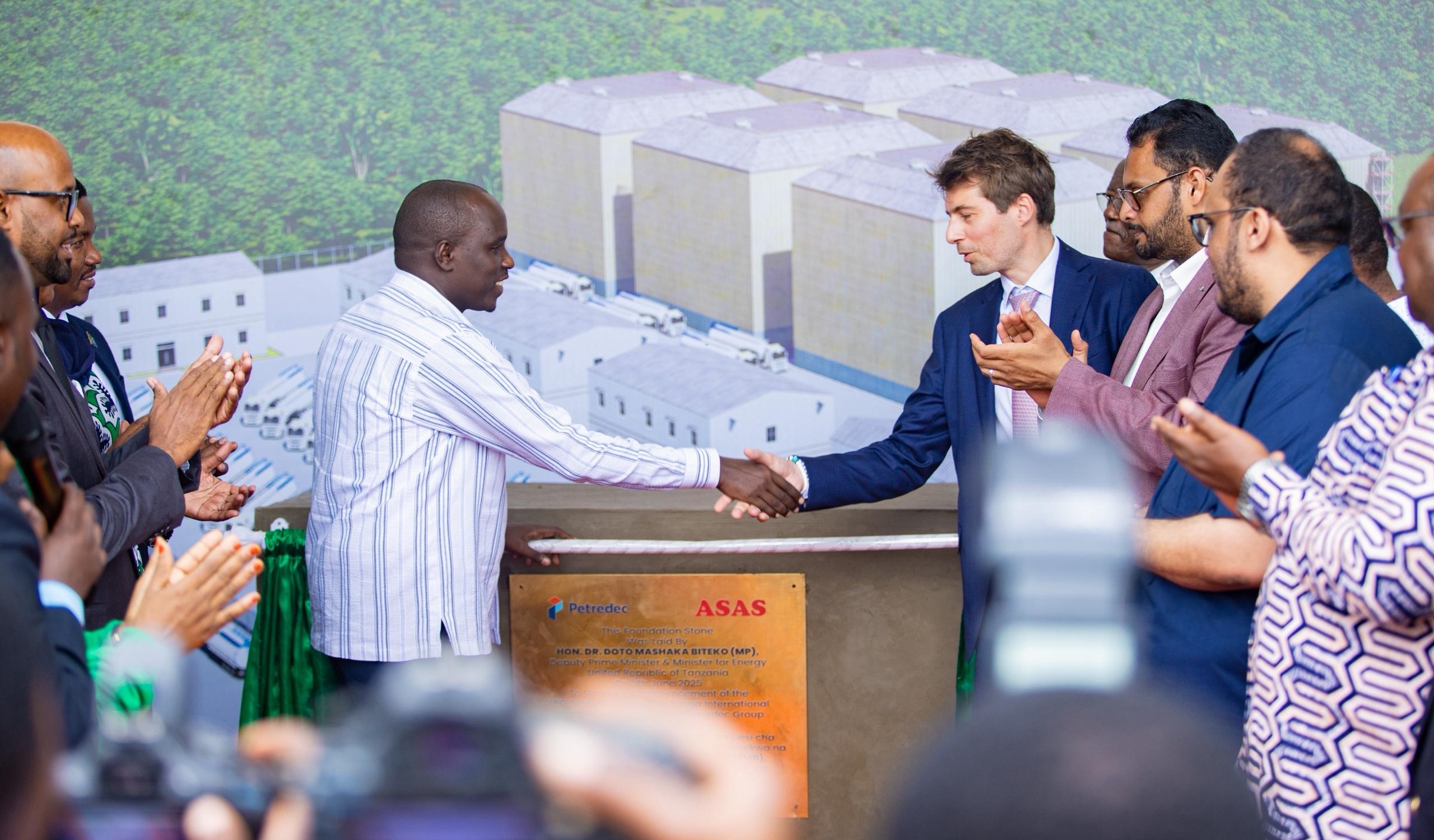Education system should produce critical thinkers

Julius Nyerere
What you need to know:
The Eighth Julius Nyerere Intellectual Festival (June 14-16, 2016) stimulated a critical analysis of Mwaliu Nyerere’s people-centred vision and its implementation in the 1960s and 1970s, as well as 30 years of neo-liberal capitalist policy, which followed. One of the key questions was the relevance of socialism and self-reliance, education for self reliance and Ujamaa Vijijini today, to meet the challenge of growing inequality, continued impoverishment of the majority in many regions and districts, and an upsurge of land grabbing and plunder of other natural resources since the global 2007/08 crisis.
Dar es Salaam. Last week provided ‘food for the soul’. The entire week was devoted to reflections on the thoughts and actions of Mwalimu Julius Nyerere or to vivid examples of putting his ideas into practice. The Round Table Policy Discussion, which TGNP Mtandao organised on the Five Year Policy Programme (FYDP) and the 2016/17 National on June 13, 2016 exemplified the latter.
Robots or free citizens?
At the Roundtable, participants from different sectors of society shared analyses of the FYDP and the 2016/17 National Budget’. Three presentations set the stage for the discussions, two by myself and Prof H Ngowi on the FYDP and the Budget respectively, and Deogratius Temba on the results of the recent Animation (Participatory Action Research) supported by TGNP Mtandao in Mbeya, Kishapu and Morogoro. Village women and men sat down together to assess their situation, analyse basic causes, decide on priorities for change, and plan strategies of action to make change happen (See Muhtasari wa Utafiti Raghbishi, Mbeya, Kishapu na Morogoro-2016 available at TGNP Mtandao). They gave feedback to the Local Government Authorities at ward and district levels, created knowledge centres to sustain this process and link up with local press clubs to publicise their concerns on community TV, radio and print media. District leaders were quick to respond with resources demanded such as maternity beds and piped water, removal of corrupt leaders and space to participate in LGA committees. Later, grassroots animators from these three regions joined others from Coat and Dar es Salaam to carry out a participatory gender review of the national budget with the staff and members of TGNP, a gender development seminar Series GDSS and other organisations. Their views were shared with the public at a national press conference, which received widespread media attention.
This exemplifies a basic principle of people centred development, as espoused in Education for Self-Reliance (1967): the educational system is not “designed to produce robots, which work hard, but never question what leaders in the government or Tanu (now CCM) are doing and saying. ...our government and our party must always be responsible to the people and must always consist of representatives – spokespersons and servants of the people.
The education provided must, therefore, encourage development in each citizen of three things: an enquiring mind, ability to learn from what others do, and reject or adapt it to his own needs and basic confidence in his own position as a free and equal member of society, who values others and is valued by them for what he does and not for what he obtains.”
People-centred or profit-centred development?
The Eighth Julius Nyerere Intellectual Festival (June 14-16, 2016) stimulated a critical analysis of Mwaliu Nyerere’s people-centred vision and its implementation in the 1960s and 1970s, as well as 30 years of neo-liberal capitalist policy, which followed. One of the key questions was the relevance of socialism and self-reliance, education for self reliance and Ujamaa Vijijini today, to meet the challenge of growing inequality, continued impoverishment of the majority in many regions and districts, and an upsurge of land grabbing and plunder of other natural resources since the global 2007/08 crisis.
Retired President Benjamin Mkapa’s keynote address provoked heated debate from the floor. His call for national dialogue was well taken, but not his assertion that “People are demanding freedom of expression, but…I have not seen any serious engagement through freedom of expression to deliberate on serious issues.” (cited in The Citizen June 15, 2016). Who was he referring to?
Certainly, not numerous examples of citizen engagement with policy and budget issues in Tanzania, and the growing expansion of organising and networking to assert citizenship rights, and the rights of women, children, pastoralists, small family farmers, people with disabilities and HIV/Aids and others. Perhaps mistakenly, I understood that his call for debate on issues instead of personalities was addressed to the ruling party MPs in Parliament, who largely failed to carry out serious and informed budget analysis.
During the festival, there were urgent calls for more democracy, protection of freedom of speech and assembly, the return to the original Draft Constitution, which provided safeguards against misuse of political power and the adoption of a Nyerere-like approach to listen to the people. The recent growth in state repression of the media, of independent advocacy organisations and of opposition political parties and elected MPs was deplored, as well as the use of the Cyber Crime law to track and punish critical voices.
Mwalimu’s take on present circumstances
Mwalimu Nyerere say or do in the present circumstances? In his talk on “Adult Education and Development” in 1976, Mwalimu said that liberating pedagogy has a political agenda: “.. the first function of adult education is to inspire both desire for change and an understanding that change is possible. For a belief that poverty or suffering is “the will of God” and that man’s only task is to endure, is the most fundamental of all the enemies of freedom.
Yet, dissatisfaction with what is must be combined with a conviction that it can be changed, otherwise it is simply destructive. Men living in poverty or sickness or under tyranny or exploitation must be enabled to recognise both that the life they lead is miserable, and that they can change it by their own actions, either individually or in cooperation with others.”
Recent government efforts to repress freedom of speech and assembly move in the opposite direction – they are narrowing space for open contestation of ideas in the community, the media and even in Parliament itself, thereby suggesting that change is impossible. This is short sighted under present circumstances, with growing public outrage over gross inequalities, corruption, and the plunder of natural resources, and the lack of viable dignified employment and livelihoods for most women and men.
As Mwalimu Nyerere said in “The Purpose is Man” in 1967, “In Tanzania .. we must safeguard and strengthen our democratic procedures; we must get to the position where every citizen plays an active and direct role in the government of [their] local community, at the same time as [she] plays a full role in the government of [her] own country.” [author’s rewording to alter male bias in the original].
Leaders or masters
The debate on democracy and free speech continued at the Kavazi la Mwalimu Nyerere workshop on Mwalimu Nyerere’s legacy and multi-party politics on June 17, 2016.
Many participants were concerned about the top down leadership style of the present regime and the growing intolerance of public dissent and oppositional politics, and called for a return to the rule of law and the Constitution.
A speech which Mwalimu Nyerere made on Mafia Island in 1966, soon after independence, called “Leaders must not be Masters”, is especially relevant here:
Our aim is to abolish this division of people between masters and servants..
…. I said that I did not make speeches at any of the places I had visited on my current tour of this island. Instead, I told the people I met to ask me questions, or to tell me the problems which face them in their everyday lives. It was difficult to get people to ask me questions….
They were afraid of speaking, probably thinking they would be punished. Why should they be punished? In the past years and centuries, we were greatly intimidated and harassed by colonialists.
If you stood before a colonial leader to speak or to ask him a question, you would be harassed by his juniors, who would ask you why you spoke or asked questions. This practice instilled fear in the minds of many citizens. …This practice has not ended yet ..
… What is the meaning of leadership? When you are selected to lead your fellow men, it does not mean that you know everything better than they do. It does not even mean that you are more intelligent than they are..
… At the moment our aim is to remove fear from the minds of our people. … You must not fear your leaders. Our aim is to hand over responsibility to the people to make their own decisions. Our leaders are not leaders by birth; they are elected by the people.”
Prof Mbilinyi is a gender and development analyst and member of TGNP Mtandao. She can be reached at [email protected]




